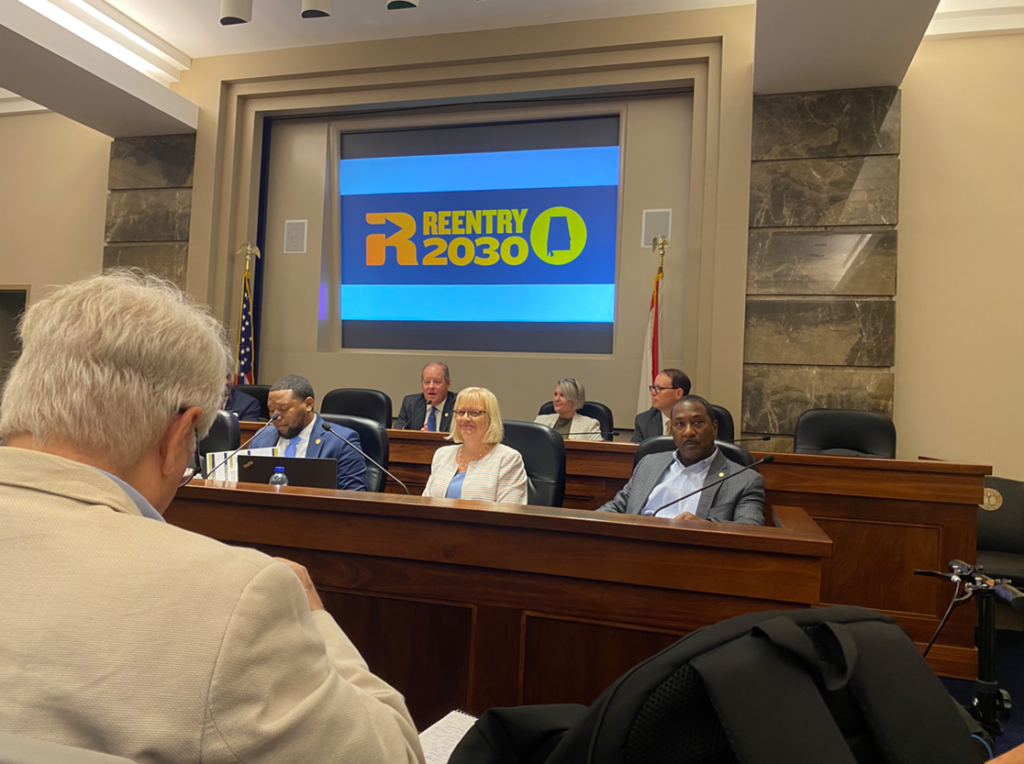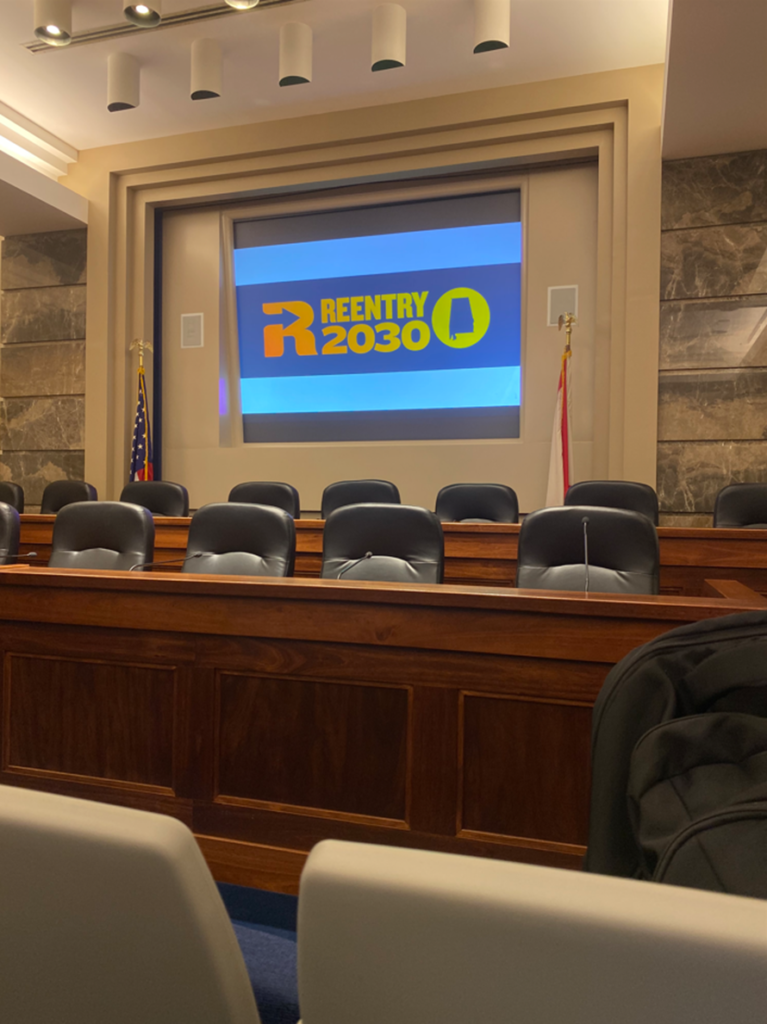By Griffith Waller, Deputy Director for Governmental Affairs
MONTGOMERY, Ala. – A group of cabinet members and state leaders on Tuesday joined law enforcement officials, policy experts and private-sector partners for the first meeting of Reentry Alabama since its reauthorization following the passage of Senator Will Barfoot’s SB 162 during the Alabama Legislature’s 2024 Regular Session.
Formally known as the Study Commission on Interagency Cooperation and Collaboration on the Rehabilitation of Formerly Incarcerated Individuals, the commission was originally formed in 2021 to improve the process of exiting prison or probation/supervision.
“The members of this commission are coming together, breaking down barriers and opening doors to new opportunities for Alabamians who have been involved in the criminal justice system,” Commission Chairman and Alabama Bureau of Pardons & Paroles Director Cam Ward said. “We do it the right way – without cutting corners and with the goal of setting these citizens up for success through programs that focus on mental health, substance use treatment, job training, education and proactive supervision.”
Reentry Alabama is tasked with reducing instances of recidivism in Alabama’s justice-involved population by identifying and implementing solutions that support successful reintegration after incarceration, fostering collaboration among state agencies to support reentry, expanding access to education and mental health programs, eliminating impediments to reentry, and pursuing partnerships with the private sector to create a workforce and job-opportunity pipeline for those served by reentry efforts.
The Commission will also be critical to Alabama’s Reentry 2030 strategy. In 2023, Alabama was one of the first states to sign on to the Reentry 2030 national framework, which focuses on dramatically improving success for people exiting prison and those under supervision. That success means treating longstanding issues while also providing a path to employment.
For Alabama’s part, the Alabama Bureau of Pardons and Paroles (ABPP) plans to expand programs like the PREP Center and Day Reporting Centers, which have resulted in recidivism falling from 30% to 4% by those who participated in these programs. That 86% reduction in recidivism translates to millions in savings for taxpayers and thousands of new highly skilled and productive workers who can help shore up Alabama’s workforce participation rate.
ABPP measures recidivism by accounting for criminal acts or failure to meet the terms of supervised release that result in return to prison with-or-without a new sentence during a three-year period following the release of a parolee or probationer. Alabama is ranked 25th in recidivism, but ABPP has the goal of cutting that rate in half, which would put the state in the top five of states with the lowest recidivism in the nation.
Reentry Alabama includes Senator Will Barfoot, Senator Robert Stewart, Representative Chris England and Representative Prince Chesnut as well as representatives from the Alabama Bureau of Pardons and Paroles, Alabama Department of Labor, Alabama Community College System, Alabama Law Enforcement Agency, Alabama Department of Mental Health, Department of Human Resources, Alabama Medicaid, Alabama Department of Corrections, Alabama Veterans Affairs, Alabama Department of Youth Services and the Alabama District Attorneys Association. Additionally, several at-large members of the commission represent higher education institutions, advocacy groups and the judicial branch.
During this week’s meeting, Commission members provided updates on the findings and recommendations from its report released in 2022. Members will examine case studies and offer new solutions to be included in the Reentry Alabama playbook at the next meeting at the end of September.



